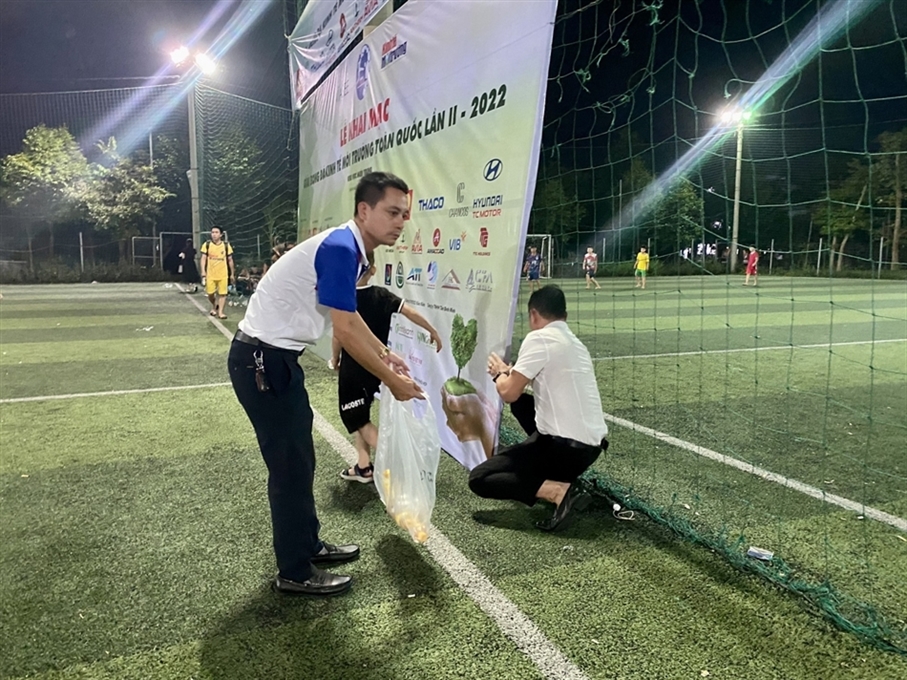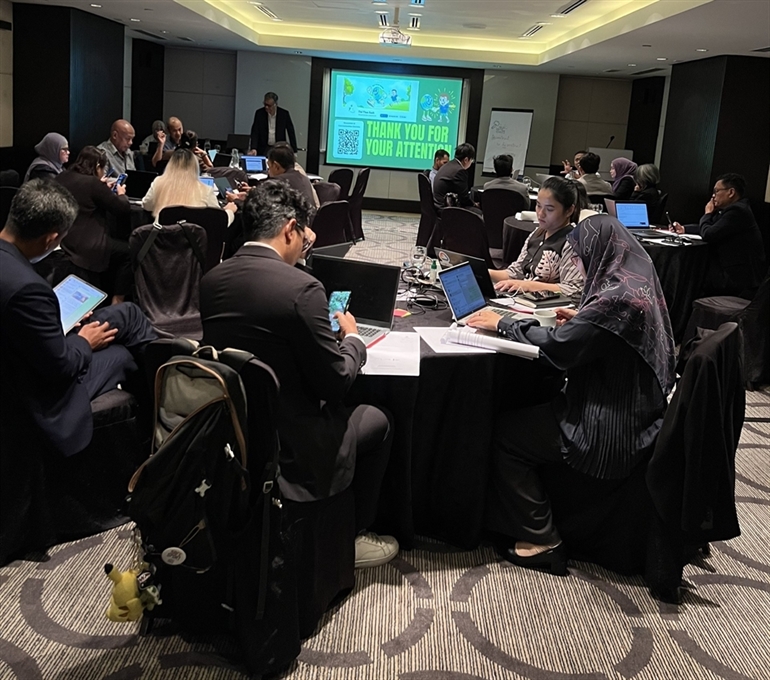At the ASEAN Sports Work Plan 2021–2025 End-Term Review and ASEAN Sports Vision 2026–2030 Consultation Workshop held in Malaysia, delegates jointly reflected on the journey of the ASEAN Sports Work Plan 2021–2025—a foundational plan that has shaped the region’s priorities, programs, and actions, closely aligned with the ASEAN Community Vision 2025 and the Sustainable Development Goals (SDGs). Notably, the ASEAN Declaration on November 11, 2022, highlighted the indispensable role of sports in building communities, fostering peace, improving health, promoting social inclusion, and advancing sustainable development.

The “Green Sports” Project is structured into three clear phases:
Phase 1 (2025 – 2026): Outreach & Consolidation
This stage focuses on building the identity of the project through the communication campaign “Viet Nam’s Sporting Efforts towards Green Sports.” The campaign is a multi-platform initiative carried out by FPT students in cooperation with the Viet Nam Sports Administration, with the aim of highlighting environmental protection efforts within Vietnamese sports. It seeks to achieve two core objectives:
- Knowledge sharing: Raising awareness of “Green Sports” and the interconnections between sports and the environment.
- Showcasing green efforts: Recognizing and amplifying the contributions of individuals and organizations in Viet Nam who are integrating environmental protection into sports practices. This includes athletes, coaches, sports enthusiasts, environmental stewards in sporting venues, as well as governmental bodies, ministries, agencies, and organizers of sporting events.
Key activities include the “Green Sports Ambassador” Photo Contest, educational content series, and pilot initiatives at schools, sports centers, and communities to connect sports with education and environmental consciousness.

The delegates attending the Consultation Meeting
Phase 2 (2027 – 2028): Expansion & Development
This phase focuses on scaling the model nationwide, organizing a national “Green Sports” tournament, encouraging enterprises to invest in environmentally-friendly sports facilities, while also advancing international cooperation and applying digital technology in management.
Phase 3 (2029 – 2030): Breakthrough & Evaluation
At this stage, the project will promote eco-sports tourism, foster the production of sustainable sports equipment, and conduct a comprehensive evaluation of outcomes in alignment with the Sustainable Development Goals.
“Green Footprint Map”: A Symbol of Commitment
This symbolic activity will be implemented in two parallel forms: On-site at events: Athletes, coaches, and spectators will be invited to leave their fingerprint and signature on a map of Viet Nam, using eco-friendly ink. Each mark represents a personal pledge, together creating a meaningful collective artwork. In the digital space: The “green heart” symbol will spread across social media, attracting wide participation from sports fans, particularly the youth.
Through the “Green Sports” project, Vietnam seeks to contribute to realizing the ASEAN Community Vision 2045—building a resilient, inclusive, and sustainable community where sports are not only about achievement but also about responsibility to society and the environment. Vietnam believes that every green action, no matter how small, represents a major step forward in co-creating a sustainable shared future for ASEAN.
HY